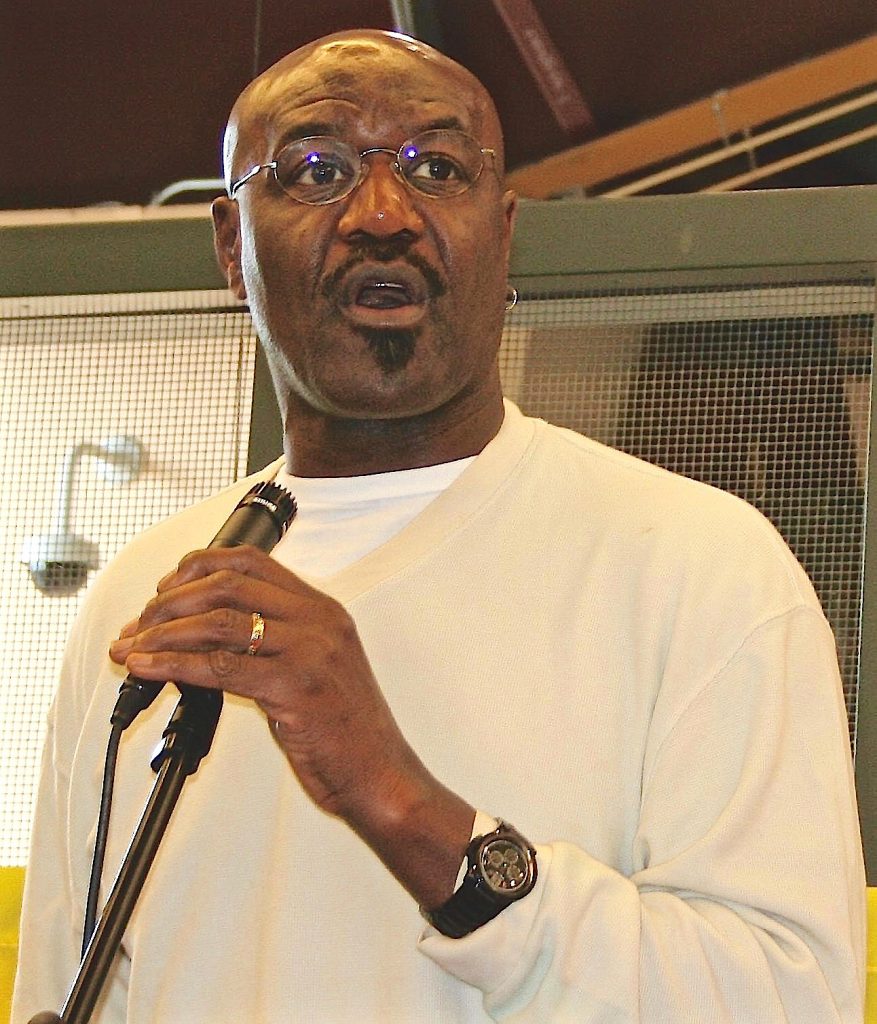Spike Lee’s ‘Da 5 Bloods’ may be the first great movie of our terrible Trump era

There’s a scene in Spike Lee’s new Vietnam epic Da 5 Bloods, where, through the clever use of subtitles, the audience gets to briefly hear North Vietnamese soldiers reminisce about their lives back home right before they’re set upon with machine gunfire from our titular characters.
It’s not something I remember seeing in another American film about the disastrous military conflict and the psychic scars that still show half a century later. Outside of a Ken Burns docuseries, most directors don’t bother to color in the perspective of the Vietnamese soldiers; instead they strand them on the other side of our monolingual ignorance, implicitly “othering” them past the borders of our narrow curiosity.
But not Lee, who has always been interested in subverting audiences’ indoctrinated expectations about who the “other” is and where the real threat is coming from.
With Da 5 Bloods, the still-hungry 63-year-old director of Do the Right Thing, When the Levees Break and BlacKkKlansman has a lot to say about those subjects and a broad, big-budget (thanks Netflix!) canvas on which to tell his story. That story is a long, sometimes ungainly, often unsubtle mashup of genres, tones and cinematic influences.
It also may be the first great movie of the Trump / Darkest Timeline era.
Here’s the lowdown: Four African-American military veterans reunite in Vietnam decades after their grueling tours to recover the body of their beloved commanding officer, played in flashbacks by a charismatic Chadwick Boseman. There is also a second, more complicated mission that brings the squad into conflict with a member’s tag-along son, a humanitarian outfit that searches for unexploded mines, a French fence and each other.
Lee lets his story stretch its legs and stroll down each tangent, and it’s easy to see why his two-and-a-half-hour genre-smashing reunion-action-heist-dramedy has been welcomed by (most) critics and cold-shouldered by audiences, who have saddled Da 5 Bloods with a failing 54% audience score on Rotten Tomatoes and a middling 5.6 user score on Metacritic.
Yes, Da 5 Bloods is a little flabby. Yes, the score by composer Terence Blanchard (a Lee staple) blares loudly at the audience. Yes, Lee tags his film with another hamfisted credits message that comes close to patronizing his audience’s intelligence. But to expect this bold, uncompromising filmmaker to restrain himself is to ask Spike Lee not to be Spike Lee. And that’s something no movie lover should want.
Whatever its imperfections, Da 5 Bloods is a war memorial epic that sticks with you. Released in the raw middle of the greatest civil unrest since the late 1960s, this invigorating film is a timely reminder of the forced labor America extracted long after slavery from its Black citizens, who made up nearly a quarter of the combat troops in Vietnam despite accounting for only 11% of America’s population.
When Vietnam radio personality Hanoi Hannah informs our soldiers of Martin Luther King Jr.’s assassination in a flashback, you can’t shake the feeling that propaganda meant to turn the Black soldier against his white counterparts doesn’t sound all that much like propaganda.
Unlike another sprawling Netflix picture from another cinematic icon, Lee doesn’t digitally de-age his actors for their harried ‘Nam flashbacks. They appear as they are now alongside Boseman as their commanding officer, which makes sense when you think about it. No matter how much they’ve changed over the years, the four brothers who came back are all stuck in the past in some way. Their fallen brother is frozen in it.
Personally, I’ve been avoiding any entertainment that promises woke hot takes or poignant grief about our deteriorating now. I just haven’t been able to summon the emotional bandwidth to go from informing myself about everything that’s wrong to entertaining myself with it.
But the uncommonly talented Lee is worth the agita. Just as Martin Scorsese did after 9/11 with Gangs of New York, Lee has made a bold, impassioned movie about our shaken moment without evoking its visual grammar. While Scorsese set his rumination on the violent birth of our nation in 19th century New York, Lee puts his viewers in a modern-day Vietnam that, in some ways, looks more healed from its devastating war with America than America does in 2020. If we have any questions about who lost the war, Lee seeks to answer them during the shambolic opening, when our main characters reunite at a posh hotel, bust some moves at a sleek nightclub and awkwardly navigate a toast from two gracious Vietnamese vets, when Paul (Delroy Lindo) nearly loses his cool at their hospitality.
Most of all, I can’t shake Lindo’s thundering performance as the MAGA hat-wearing vet who can’t stop raging at the ghosts inside him.
Lindo, so good in Lee’s underrated crime drama Clockers, is astonishing here. I’ve never seen a performance like his—as a man who’s inner torments run so deep that he can no longer recognize who the real betrayers are. Paul is Melville’s Ahab, Shakespeare’s King Lear and De Niro’s Jake LaMotta rolled into one, but he’s also Spike Lee’s mirror to an unraveling, unrelenting America. Paul is a veteran of centuries of racial exploitation and violent colonialism, lashing out in the darkness of a war that has never ended. His politics are unpalatable to his friends and his outbursts are scarring to his son. But Lindo never lets you forget Paul’s brutalized humanity. He is us.
And I can’t think of anyone in more dire need of forgiveness than these United States of America.





Be the first to comment on "Your weekend watch list"